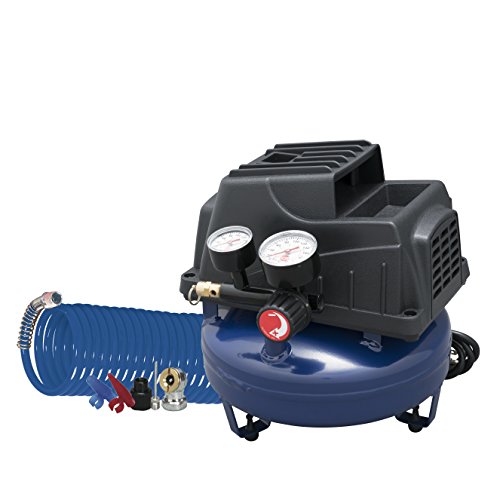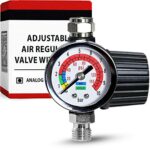
Oil-less air compressors start by bringing in outside air through their unloader valve and passing it through an inlet air filter in order to ensure that the air is clean. Rotary screw air compressors also use displacement and generate the air compression by running a system of interlocking screws that draw in air and then pressurize it in a small area. The fundamentals of how oil-less air compressors do their work means you could be looking at lower costs, a better footprint and cleaner air.
Oil Free compressors are guaranteed to meet ISO 8573-1 Class Zero.Oil-free air compressors can be the perfect solution for the compressed air applications where meeting the highest air purity standards is key. Oil-Free Rotary Screw Compressors Rotary screw compressors are positive displacement compressors. As for most industrial air compressors operating in the 80 – 125 psig range, two stages of compression are required to handle the heat of compression in oil-less rotary lobe compressors.
These compressors do use oil a chamber keeps oil separate from the compressor itself. We will dive into how exactly these compressors work in just a second. The main difference between an oil-lubricated compressor and an oil-less compressor is the location of where oil is used.
Now we see why the oil-free screw compressors are more expensive: they have two compression elements, compared to only one in oil-injected compressors. On air-cooled oil-free rotary screw compressors, outside air is used to cool the compressed air and the oil, and the oil is in turn used to cool the compressor elements. On water-cooled oil-free rotary screw air compressors, water is used to cool the oil, the compressed air and the compressor elements.
When you set out to buy an air compressor, you are faced with one important choice, to buy an oiled or oil less air compressor. Besides draining the compressor every night after use, there isn’t any maintenance hassle with the oil less compressor. Needless to say, the requirement is minimal, so here oil less compressor is best suited as it has a lower output ranging between 2-5 CFM. On the other hand, a fast-paced construction team, a mechanic or an auto body painting technician has a requirement far greater than a homeowner.
In recent weeks we have looked at some specific applications for which oil-free air compressors may be preferable – for example, dental air compressors that must produce very clean and dry output for use inside patients’ mouths. Lubricated air compressors inevitably introduce a certain degree of oil contamination into the air they output, including microscopic aerosol oil droplets, clouds of oil vapour or mist, and even liquid oil that may form on the inner walls of the compressor output pipe and gradually creep to the nozzle. Oil-free air compressors eliminate these problems in the simplest way possible – by not using oil.
oilless air compressor how it works Related Question:
How long do oilless air compressors last?
Oil less compressor is as good as the Teflon coating. Once it’s gone the compressor loses its efficiency so most people just get rid of it and buy a new one. Typically, these compressors run smoothly for at least 18 months (that’s about 2000 hours).
Do oil-free compressors need oil?
Oil-Free Lubrication Oilless compressors do not use oil for lubricating. Instead, their wearable parts are coated in special friction-reducing chemicals and are designed to be self-lubricating for the life of the compressor.
How are oil-free compressors lubricated?
Oil-free air compressors also use a piston or rotary element, but they get around the lubrication problem by coating the compression element with a pre-lubricating material like Teflon. Some oil-free compressors may also use water in place of oil for the lubricating and cooling process.
Are oil less compressors any good?
While oil-free air compressors are cheaper, lighter and require less maintenance, oil air compressors are more durable. As the oil-free compressors are pre-lubricated, there is no constant maintenance and the unit tends to get dry when the Teflon starts wearing out. They don’t last as long as oil air compressors.
Can you lubricate an oilless air compressor?
Less oil use will result in cost-saving benefits along with an eco-friendlier approach. The name may seem misleading, but oil-free compressors still use oil as lubrication for most of the moving parts and to cool down the unit.
What is the difference between oil-free and oil compressor?
Oil air compressors makes use of oil for the lubrication. On the other hand, oil-free air compressors does not need to be lubricated with oil. You don’t have to change any oil once you start using it. To get around this, the pump mechanism like the piston and housing are coated with materials such as Teflon.
What does oil-free air mean?
Oil-free air compressors eliminate the need for in-line oil filtration. An oil-free screw compressor virtually eliminates the need for in-line oil filtration and in most cases will eliminate the risk of oil contamination completely.
Can you lay a oil-free compressor on it’s side?
As a general rule you should never lay an air compressor on its side unless its brand new. New air compressors don’t typically come with oil so laying them down won’t cause any harm. Used compressors, however, will have oil in them which, if tipped over, can get into areas it shouldn’t and cause problems.
How often should you change air compressor oil?
How often must the oil be changed? The oil change is usually carried out in connection with recurring maintenance. Mineral compressor oil should be changed every 4000 operating hours. Synthetic compressor oils can usually be operated twice as long.
What is the advantage of an oil-free air compressor?
Switching from an oil-flooded to an oil-free air compressor provides operators with significantly lower maintenance requirements, including: Fewer ancillary air system components to maintain. Longer timeframes between oil changes. Elimination of expensive oil filters to clean the compressed air.
Can you leave air in your compressor?
The short answer is yes, it is perfectly safe to leave an air compressor full. However, this assumes that it has been properly maintained, with regular draining to remove accumulated moisture from inside the tank.
What are the features of an oil-free air compressor?
Oil-free compressors are especially renowned for their minimal maintenance requirements. The absence of lubricating oil combined with the self-lubricating nature of the Teflon coating means that the cylinder requires no further lubrication, eliminating the need for scheduled oil changes.
Should I buy oilless air compressor?
Do I need an oil-free compressor? The first step in selecting any compressor is assessing your facility’s needs. There are instances where the consequences of oil contamination are too high, therefore having an oil-free air compressor is a must.
Are oil free compressors louder?
Oil-Free Compressors Are Extremely Loud We can’t deny that oil-free compressors used to be much noisier than their traditional oil-lubricated counterparts. However, modern oil-free compressors are not nearly as loud as people make them out to be.
What is the average lifespan of an air compressor?
What is the Average Lifespan of an AC Compressor? The typical lifespan of an AC compressor is between 10 and 15 years while your HVAC system as a whole should last 15 to 20 years.

